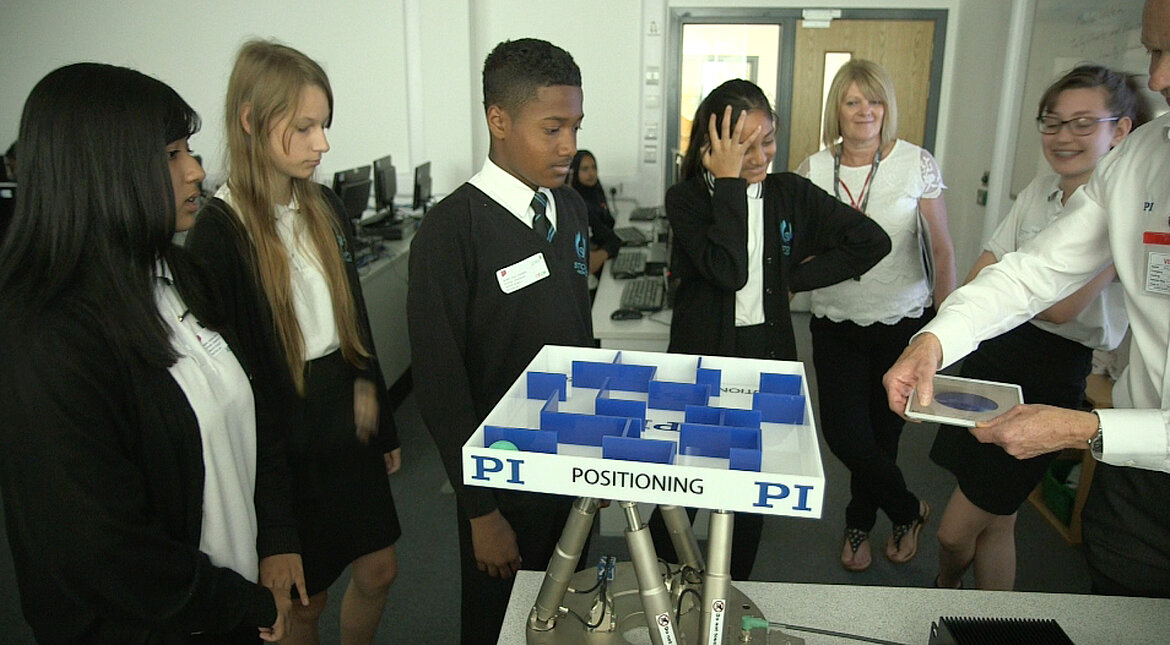The UK wants to build a technology lead manufacturing economy, a noble goal that fits well with the the country’s innovation history. But risks such as Brexit and a trade war pale into insignificance when the question of employee skills is put on the table.
Baby Boomers like me, if we can afford it, will be hoping to retire within the next ten years. Within the UK economy this will see a high proportion of highly skilled Engineers and Scientists needing to be replaced by a younger generation. Artificial intelligence, despite all the hype, is not going to be a solution to what is likely to be a shortfall, at least not in the foreseeable future.
Inspiring a younger generation
There is an urgent need to inspire a younger generation to make a career choice that takes them into the high technology sector. I was therefore really excited to be able to go into a high school in Luton recently to talk to 120 GCSE students who were interested in Science, Technology, Engineering and Mathematics (STEM). Over the course of the day 4 groups of students listened to how our hexapod technology is used in a number of ground breaking applications around the world and what careers are available for qualified people who want to join PI. The interaction with the students in terms of questions, engagement with the activities and interest in the technology was far beyond my expectation. If, as a result of the day, only one student is inspired to follow a path into high technology I see it as a success.
Addressing the STEM skills shortfall
Much more needs to be done to address the looming skills shortfall. The affordability of University fees and the financial burden they create is no incentive to study a STEM subject. Immigration policy has to enable the free passage of skilled STEM workers to come into the UK economy. Employers as well will have to play their part recognising that there is a need to offer attractive working conditions and a competitive salary as the demand for STEM skills is now global.
I cannot influence Government policy however I and my colleagues can try and influence the career path of students within the school environment. We plan to do more STEM and education sessions in Schools in the future. A small contribution I know, but one that I hope inspires a few to be part of the UK technology economy in the future.

